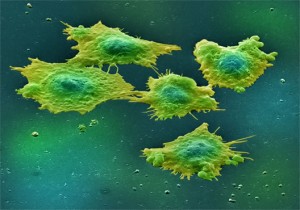
Sepsis
Before starting on the main purpose of this blog I should explain the reason for writing it in the first place. My father had serious complications from what should have been a very straight forward removal of a tumour from his colon via keyhole surgery.
In another blog I’ll walk you through the whole story because it offers a number of very useful lessons for us all about the problematic nature of surgery and post-operative care. One, of many complications, was an infection which returned him to hospital. more on than off, for two months.
In a previous life as a researcher I’d done some work with infection, in particular, sepsis so I felt that a short blog outlining some of the signs and symptoms of blood poisoning would be of value. It is worth noting that septecemia is one of the most common causes of death in the USA. One source suggests between 1-2% of deaths are caused by it. In the UK the NHS claims sepsis cases are responsible for 30,000 lives each year.
As a point of information there is a slight difference between sepsis and septicaemia though most people use the words interchangeably. Sepsis is when the infection of the blood is bacterial in origin while septicaemia also includes infections which are fungal and viral in nature.
By way of shorthand I will use sepsis (as opposed to other names and spelling) for the rest of this blog post. The definition of sepsis is fairly straightforward. It is blooding poisoning which occurs when our bodies over react to an infection. This in turn can lead to blood clotting and inflammation.
Sepsis comes in three stages with differing degrees of the severity of the symptoms. Please note that severe sepsis and above are very serious and if you think you have either you should attend an Emergency Room/A&E as soon as possible.
People with mild sepsis typically present the following symptoms:-
- Fever and often delirium.
- Increased breathing rate.
- Palpitations.
With severe sepsis symptoms can include:-
- Low blood pressure
- Cognitive dysfunction
- Nausea/vomiting
- Pale and “clammy skin”
- Bowel disorders such as diarrhoea
The final stage is septic shock when the body’s organs are at risk due to low oxygen levels.
For mild sepsis treatments will typically involve antibiotics. However for severe sepsis and septic shock a patient will need to go to intensive care so that they can be monitored at all times. In some cases treatments in an ICU will involve blood transfusions and anti-viral medications.
The causes of sepsis are as varied as the causes of infections themselves. But flu, appendicitis, post-surgery and meningitis have all been cited as common reasons for developing sepsis.
The above is, of course, a simple over view of the condition. Given the impact of infections on my families’ life over the last few months I’d love to find out a bit more about the experiences of others who have had sepsis. It would be great if you could share your sepsis story in the comments box below. In you could think in terms of the following questions that would be great:-
- What type of sepsis did you suffer from?
- What was the cause of the sepsis?
- How was it treated?
- How long did it take you to recover?
- What one piece of advice would you give to somebody who has just been diagnosed with sepsis?
I look forward to reading your comments. Thanks very much in advance!


